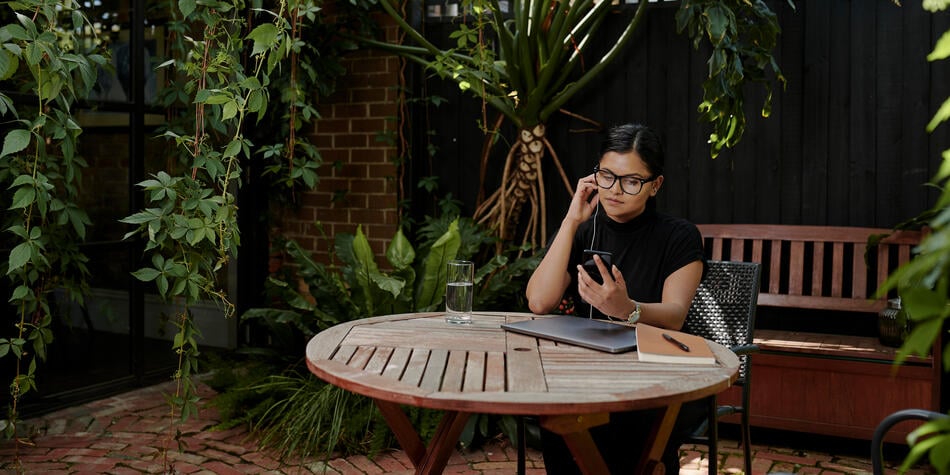Deakin's new Bachelor of Arts major, Digital Cultures, explores the influence of digital technologies on society, culture and government – emphasising a forward-thinking, interdisciplinary and reflective approach.
Associate Professor Steven Slaughter offers valuable insights into this dynamic major at Deakin.
Deakin digital cultures major
Designed by top academics, in conjunction with industry leaders, this major is for digital natives who are curious how digital technologies are changing society.
'Digital cultures examine how Artificial Intelligence, social media and the internet influence information, communication, ethics and power. It explores the evolving effects of digital technology in relation to official decision-making systems locally and globally.' Associate Professor Slaughter explains.
'Deakin is currently the only university offering a digital culture major within arts in Victoria*.'
Learn to understand your digital choices
Studying a digital cultures major enables you to think critically about technology – exploring who holds power and influence in the digital landscape and its implications.
You will investigate the connections between media, culture and technology, highlighting their role in our communication-driven lives.
Your studies will include anthropology, the philosophy of mind, and youth culture and identity – all examined through a digital perspective.
Deakin is positioned to lead in this space with our high-profile researchers and leading online presence. We think about digital in new ways and evaluate its evolving impact on our lives.
Associate Professor Steven Slaughter
Digital cultures, Bachelor of Arts
Get in-demand critical thinking skills
'From snapchat to TikTok, digital culture is shaped by artificial intelligence. Biases of race, class, gender and sexuality are embedded in everyday search algorithms. We’ll question what that means for society and culture and look to the future to explore what comes next.
'Students will also examine the regulatory systems that are in place and evaluate their effectiveness,' Associate Professor Slaughter explains.
'We'll ask students to take a step back and examine the impact of the digital world. It's important to understand who has power and influence and what that means. This type of reflective thinking is invaluable to employers.
Deakin’s Bachelor of Arts graduates are equipped with in-demand communication, leadership and transferable skills. Demand for skills like critical thinking and problem solving are expected to soar by 63% by 2030**.
A 15-year study by Google^ found that the key factors for worker success are communication, empathy and critical thinking. These skills, along with problem-solving and the ability to connect complex ideas, are precisely what an arts degree provides.
Enhance your digital cultures major by selecting from over thirty majors and minors within the Bachelor of Arts, allowing for a personalised degree across diverse fields such as history, journalism and sociology.
Prepare for future success
A digital cultures major will put you on track for future-focused roles from education and journalism to communication.
From your first year, we'll help you define your career goals, build confidence and develop essential skills.
Throughout your studies, you may have opportunities for internships, volunteering, study tours and conferences – both domestically and internationally.
You'll graduate equipped with the skills, knowledge and professional networks needed to launch your career globally and succeed in various industries. This is one reason why Deakin is the #1 university in Victoria for graduate employment.
Deakin is currently the only university offering a digital culture major within arts in Victoria^. Find out more about studying arts at Deakin.
Footnotes
*As of November 2024
**Deloitte Access Economics study, The Value of the Humanities, 2018
^The surprising thing Google learned about its employees — and what it means for today’s students The Washington Post
Deakin references data from a range of government, higher education and reputable media sources. For more information, visit our list of sources.

